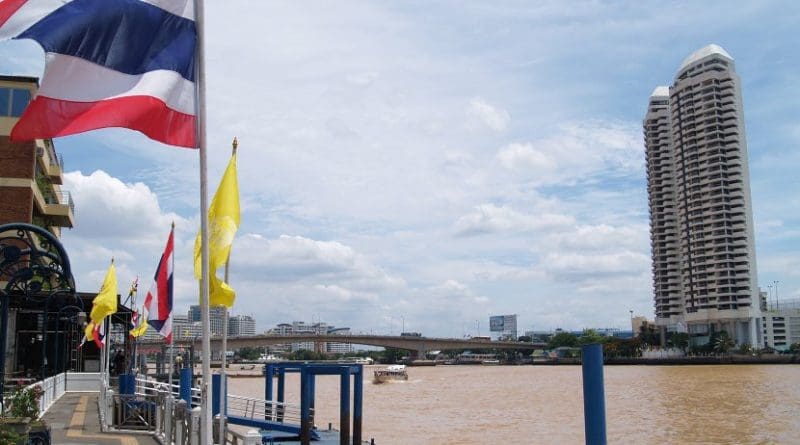Thailand To Have New Government By June 2019, Says Deputy PM
By BenarNews
By Wilawan Watcharasakwet
If elections go ahead as planned next year, military-ruled Thailand will be under a new government by June, Deputy Prime Minister Wissanu Krea-ngam said Thursday.
He vowed that the general election would push through as planned on Feb. 24, nearly five years after the military seized power.
Official results of the election would be announced no later than April 24, followed by a meeting of parliament on May 8 to select the prime minister.
“According to the constitutional regulations, the election commission suggests preparations for the election date that should be on the last Sunday of February, which is Feb. 24,” Wissanu told reporters at Government House in Bangkok.
Incumbent Prime Minister Prayuth Chan-Ocha was only four months from mandatory retirement from the army when he seized power at the height of street protests against the elected government of Yingluck Shinawatra, on May 22, 2014.
Wissanu said the National Council for Peace and Order (NCPO), as the junta is formally known, would remain in power until the formation of a new cabinet.
“May 8 is the first meeting date for the national assembly as well as the last day of this cabinet. However, the NCPO will still remain in power until the new cabinet announces its policy in June next year,” Wissanu said.
The military junta has pushed back dates for elections at least four times.
Wissanu’s announcement on political timelines came a month after Prayuth confirmed Bangkok’s plans to hold the election in February during a meeting in Tokyo with Japanese counterpart Shinzo Abe.
Elections Commission to consider EU request
Meanwhile, a top elections official was quoted saying Thursday that the junta would study a European Union request to send a mission to Thailand consisting of more than 200 people to observe the elections.
“Initially, we’ll stick to what we’ve always done. If they come to observe constructively, comply with related laws and regulations and do not cause problems in the process, there’s no reason to deny their request,” said Ittiporn Boonpracong, president of Thailand’s Election Commission.
He told the Bangkok Post that the commission would start considering the request in two weeks, explaining that election authorities were busy redrawing constituencies.
Uchane Cheangsan, a political science professor at Walailuck University, said Thais have been anxiously awaiting the elections.
“The Thai society wants to vote,” Uchane told BenarNews. “People are tired with Prayuth. Deep down inside, I think people are aware what has happened with the country. They want to have a new government that is not [led by] Prayuth.
After taking power, Prayuth dissolved parliament, detained political leaders and imposed a curfew while promising to bring Thailand back to democracy within 18 months.
During the past four years, Prayuth’s government has returned Thailand to relative economic strength, with gross domestic product (GDP) growing to 4 percent and exports at a seven-year high.
But a recent Human Rights Watch (HRW) report stated that the junta had repeatedly failed to fulfill pledges made to the U.N. General Assembly to respect human rights and democratic rule.
Instead, it said, Prayuth curtailed people’s rights to free speech and peaceful assembly and orchestrated the 2017 Constitution, “which will entrench unaccountable and abusive military power.”
The military-backed constitution, which was adopted through a national referendum in August 2016, contains provisions that allow the military to add 100 seats to the Senate and appoint all its members, HRW said.
The military controls 143 out of 250 parliamentary seats, reports said. Under the previous junta after the 2006 coup, the military held 67 of 242 seats.
Under Prayuth’s leadership, Thailand also clamped down on dissent, arresting pro-democracy activists and critics, as well as banning large political gatherings and demonstrations.
The junta-backed parliament also passed an array of laws aimed at gagging free speech, rights activists said, in a country that already has Lese-Majeste, a strict anti-royal defamation law that forbids insults to members of the Thai monarchy.

